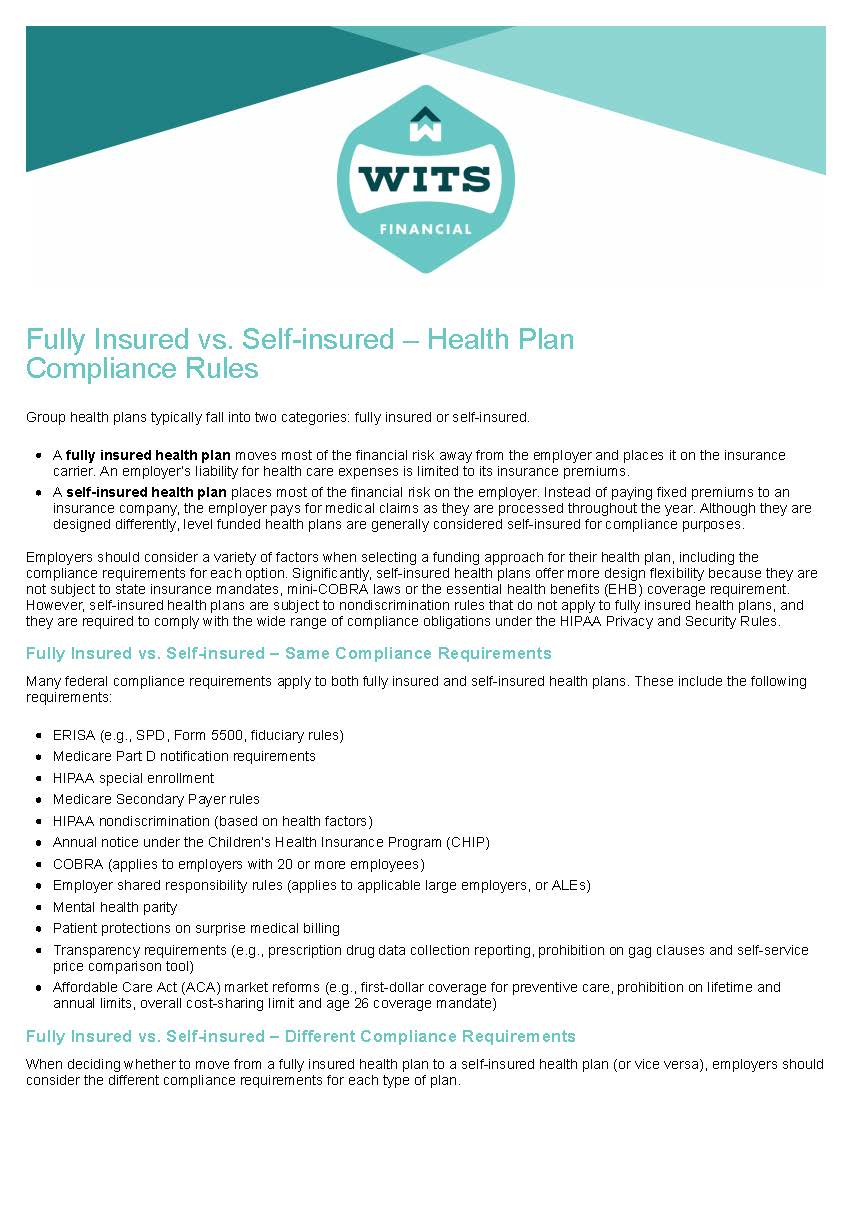Group health plans typically fall into two categories: fully insured or self-insured.
A fully insured health plan moves most of the financial risk away from the employer and places it on the insurance carrier. An employer’s liability for health care expenses is limited to its insurance premiums.
A self-insured health plan places most of the financial risk on the employer. Instead of paying fixed premiums to an insurance company, the employer pays for medical claims as they are processed throughout the year. Although they are designed differently, level funded health plans are generally considered self-insured for compliance purposes.
Employers should consider a variety of factors when selecting a funding approach for their health plan, including the compliance requirements for each option. Significantly, self-insured health plans offer more design flexibility because they are not subject to state insurance mandates, mini-COBRA laws or the essential health benefits (EHB) coverage requirement. However, self-insured health plans are subject to nondiscrimination rules that do not apply to fully insured health plans, and they are required to comply with the wide range of compliance obligations under the HIPAA Privacy and Security Rules.
We Make it Easy
Let us take the stress out of managing employee benefits.
Schedule a Call
We’ll ask a few questions, review your current benefits and determine your goals.
Let us Do the Leg Work
Based on your needs and budget, we’ll research all available options and help you select the right plan for your employees and your business.
Bask in the Glory
When you’re confident due diligence has been done, and you’ve selected the right plan it’s time to sit back and relax - or get to everything else on your list.
